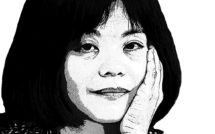

Secularism is a broad concept that does not possess one ideal model. Due to different historical trajectories, religious genealogies, nation-state processes, and influences of modernity and colonialism, secularism and how it manifests in a society varies considerably in different countries (Göle 2010). In Turkey, secularism (Turkish: laiklik, French: laïcité) is defined as “separating state and religion and maintaining their separation in particular state spheres within a set of institutional relationships that ensure their integration and supervision as well (Davison 2010).” Such an understanding of secularism from the foundation of the Republic of Turkey caused many implications for the country. The founder of modern Turkey, Mustafa Kemal Atatürk, was determined to establish a country that would be culturally Westernized and wanted to eliminate the state Islam, with its official hierarchy and ideology, and replace it with a modern Islam that was solely a personal faith (Szyliowicz 2003).
Atatürk’s goal was not easy to achieve and he implemented many reforms in order to enforce secularism in the country. Some of these reforms worked to abolish the caliphate, abolish the Ministry of Islamic law and pious foundations, shut down religious seminaries and put religious high schools under the authority of Ministry of Education, close the Sufi Dervish lodges, declare Islamic law and Sharia courts null and void, and eliminate the constitutional statement of Islam as the state religion (Cagaptay 2006). Many of these reforms aimed at decreasing the influence of religion on the social sphere; however this did not mean a strict separation of religion and state in Turkey; rather it became a way for the state to legitimately control religion. The Turkish state is actively engaged in religious affairs even today. The Presidency of Religious Affairs (the Diyanet) operates under the Office of Prime Ministry and does not only control, but also constructs and governs religion, promotes certain interpretations of Islam, tries to maintain national unity and collective solidarity, and defines what is religious and what is secular in line with state policies (Turner & Arslan 221-2).
The state’s position in relation to religion and the role of the Presidency of Religious Affairs has always been problematic in Turkey. As a result, secularism has been a contested concept and became a significant issue in Turkish political life, paving the way for many conflicts. The power struggle between secularists and “Islamists” has marked the history of Turkish politics. In this struggle, the Turkish military has acted as the guardian of the state, staging coups and banning certain political parties and figures in order to protect the secular system of the country (Jung 2008).
The power struggle between secularists and “Islamists” has marked the history of Turkish politics. In this struggle, the Turkish military has acted as the guardian of the state, staging coups and banning certain political parties and figures in order to protect the secular system of the country (Jung 2008).
Currently, AKP (Justice and Development Party), which defines itself as “conservative democrat” party, holds the majority of seats in the Turkish National Assembly. It has been the ruling party since 2002 and gained a growing popularity following its pro-EU policies following its first electoral victory (Bilgin 2008). However, certain shifts in the policies and practices of the government such as disappearing liberal political trends, stalling of EU accession talks, improving relations with anti-Western states such as Iran and Russia, deteriorating relations with Israel, and a lack of media freedom and gender equality (Cagaptay 2009) have led people to question the policies and intentions of the AKP government.
Saatçioğlu (2012) argues that the political motivations that guided AKP’s reform commitments to the EU existed to please Turkey’s pro-EU membership electorate and AKP’s conservative/religious voters who would like to see freedom of religion expanded under EU conditionality. She claims that AKP used reforms to weaken domestic secular forces (i.e. the military and high courts) and survive as a party with Islamist roots in Turkey’s secular political system. While it is possible to find significantly varying opinions on the policies of AKP, the party has often been associated with Islam in certain ways as it was categorized as Islamist, pro-Islamist, Islam sensitive, with a moderate Islamist orientation, or moderate Islamic ideology by different people or groups (Bayram 2015).
AKP’s relation to Islam is often discussed in line with its policies and discourse. Since the Presidency of Religious Affairs operates under the Office of Prime Ministry, the government is able to make policies regarding religion. However, it is necessary to analyze AKP’s relationships with different Islamic religious movements, fraternities, and communities within Turkey and abroad.
One thing that is well-known by the public and also accepted by Turkish authorities is the fact that AKP and the Gülen movement, which is being held responsible for the failed coup attempt, had very close relations and cooperated for many years before the recent coup attempt (Şık 2014). Such a relationship is believed to result in significant corruption. For example, there are claims that members of the Gülen movement were easily promoted into higher positions within Judiciary branch. As a political party functioning in a secular political system, potential legal implications of such relationships are important. However, considering the coup attempt that took place on the July 15 and the actions taken by the Turkish state, it seems more difficult than ever before to have access to objective sources or people who can provide sound information about the issue and confront the relevant authorities. In a country where journalists, online activists, and scholars are jailed, and news channels are banned for expressing their views, such incidents create extra pressure.
AKP government has long struggled against Turkish military. Many high ranking military officials were put on trials (known as Ergenokon) for allegedly plotting a coup against the government between 2008 and 2011. Many high ranking officials were sentenced with long year of prison and as a result there were important changes within high ranking posts in Turkish military. Such actions were interpreted as AKP’s attempt to control the military, a major secular institution in Turkey.
On the July 15, an attempted coup took place in Turkey, which resulted in deaths of more than three-hundred people. A group of military officials occupied many major locations and state buildings such as the bridges in Istanbul, the national intelligence office, and the state channel’s office. Military officials declared martial law country-wide until stability was achieved again and enforced a curfew via the national state channel, which they occupied. In response, the government declared its rejection of the coup and asked people not to obey the curfew and to go out to the streets. Turkish people, having very negative memories of previous military coups, were quick to take to streets and breach the curfew imposed by the soldiers that occupied the national TV. However, the coup was not attempted by a secularist group of soldiers, but allegedly by the members of Gülen movement who were supported by the government previously.
While the events briefly described above fall short of conveying all the details, the religious aspect of the events will be elaborated on below. The attempted coup took place at night. The mosques received extra calls for prayer throughout Turkey almost all night. At the end of the calls, from the minarets of the mosques, the imams asked people to leave their houses as requested by the state. Since the imams work within the Presidency of Religious Affairs, they are also like any other civil servant required to follow the rules and orders of the state. Imams often do not decide the contents of their speech in a mosque—it is decided by the Presidency of Religious Affairs. The government decided what the imams should tell people and used the mosques in promoting its own cause. This blurs the lines between what is sacred and what is profane and raises questions about the principle of secularism and how it is implemented by the state.
Since the state is the only legitimate force in the field of religion in Turkey, it also holds important advantages over other groups that promote a different interpretation of Islam. This hierarchically advantageous position of the Turkish state was used in targeting the Gülen movement and its followers. While there is no academic study of discourse analysis regarding the statements made during and after the attempted coup, there was an obvious effort to demonize the Gülen movement, to dissociate it from Islam, and to show unity against an “enemy” that was deemed so within hours of the coup. The marches that took place all over Turkey included a lot of pro-Islamic statements. Considering the attempted coup was purportedly carried out by an Islamic religious movement, a focus on the religious perspective of the coup is rather interesting. The attitude of the government can be interpreted as an effort to monopolize the religious authority in Turkey.
In the aftermath of the coup, news was aired saying how the Gülen movement actually insulted the prophet Muhammed (f5haber 2016), how some of their teachings were in complete contrast with Islam, and how its members commit crimes that a Muslim should never commit (Birgün 2016). The supposed insults, wrong teachings, or crimes all date back to before the coup, yet the news about them was published only after the attempted coup. Moreover, Turkish President Erdoğan apologized to God and the Turkish people for having been involved with the Gülen movement during a speech he delivered in his presidential palace (Odatv 2016). While he expected to be forgiven, thousands of people who were sacked from their jobs, lost their positions, or were arrested in masses for belonging to or sympathizing with the Gülen movement were not afforded the same opportunity.
The actions taken by the government during and after the coup—to end the events and later on to fight against the Gülen movement—demonstrate an attempt by the government to stay in power and to sustain its dominant religious position.
The actions taken by the government during and after the coup—to end the events and later on to fight against the Gülen movement—demonstrate an attempt by the government to stay in power and to sustain its dominant religious position. The Turkish state is secular, however rather than separation, the principle of secularism enables the state to control and supervise religion. Any other group that organizes around religious causes and collects members threatens the state’s dominant position. This may become especially problematic when governments that have a religious/conservative electorate come into power.
Due to the principle of secularism, the Erdoğan regime easily used its religious resources to influence people and to make the opposing religious group ineffective. The group would be demonized and criminalized on media outlets. While there is always an effort to distinguish religious beliefs from illegal actions and practices, the attempted coup was reflected as if it was a collective effort of all the Gülen movement members—their religious teachings deemed an insult and threat to Islam by media and politicians. Since the state holds all authority in deciding what is religious and what is not, other religious groups may be at risk of oppression and, in cases of conflict, they may cease to be recognized as a religious group, but rather as a collective part of a criminal structure.
Tayfun Kasapoglu holds a master’s degree in Sociology from Vytautas Magnus University in Lithuania. His main research interests are religion, non-religion, and atheism. He wrote his MA thesis on atheists’ attitudes towards the relations between state and religion in contemporary Turkey. He holds a bachelor’s degree in Translation and Interpretation Studies from Hacettepe University, Turkey.
Photo: Istanbul, Moyan Brenn | Flickr
References:
Bayram, S. (2015). Where the AKP Stands: A Manifesto-Based Approach to Party Competition in Turkey. New Middle Eastern Studies, 3, <http://www.brismes.ac.uk/nmes/archives/1372>.
Beckford, J. A. (2003). Social Theory and Religion . New York: Cambridge University Press.
Bilgin, P. (2008). The Politics of Security and Secularity in Turkey: From the Early Republican Era to EU Accession Negotiations. D. Jung, & C. Raudvere içinde, Religion, Politics and Turkey’s EU Accession (s. 146-147). New York: Palgrave Macmillan.
Birgün. (2016, 07 23). Darbe girişimi sonrası kabul edilen Fetö iddianamesinin tüm ayrıntıları ortaya çıktı (All the details revealed about Fetö indictment accepted in the aftermath of the attempted coup). 09 15, 2016 tarihinde birgün.net: http://www.birgun.net/haber-detay/darbe-girisimi-sonrasi-kabul-edilen-feto-iddianamesinin-tum-ayrintilari-ortaya-cikti-121234.html adresinden alındı
Cagaptay, S. (2006). Islam, Secularism and Nationalism in Moden Turkey: Who is a Turk? Oxon: Routledge, 13-14.
Cagaptay, S. (2009, 2 2). Turkey’s Turn From the West. 2015 tarihinde The Washington Post: http://www.washingtonpost.com/wp-dyn/content/article/2009/02/01/AR2009020101672.html adresinden alındı
Davison, A. (2010). Hermeneutics and the Politics of Secularism. L. Cady, & E. S. Hurd içinde, Comparative Secularisms in a Global Age (s. 34-36). New York: Palgrave Macmillan.
f5haber. (2016, 08 16). Fetullah Gülen, Hz. Muhammed ve Kur’an’a böyle hakaret etmiş (Fetullah Gülen insulted Hz. Muhammed and the Quran). 09 15, 2016 tarihinde f5haber.com: http://www.f5haber.com/medyafaresi/fetullah-gulen-hz-muhammed-ve-kur-an-a-boyle-haberi-5928268/ adresinden alındı
Giesen, B. (2005). Tales of Transcendence: Imagining the Sacred in Politics. B. Giesen, & D. Suber içinde, Religion and Politics: Cultural Perspectives (s. 93). Leiden-Boston: Brill Academic Publishers.
Göle, N. (2010). Manifestations of the Religious-Secular Divide:Self, State, and the Public Sphere. L. Cady, & E. S. Hurd içinde, Comperative Secularisms in a Global Age (s. 41-53). New York: Palgrave Macmillan.
Jung, D. (2008). Secularism: A Key to Turkish Politics. D. Jung, & C. Raudvere içinde, Religion, Politics and Turkey’s EU Accession (s. 117-137). New York: Palgrave Macmillan.
Odatv. (2016, 08 04). Cumhurbaşkanı Erdoğan Özür Diledi (President Erdoğan Apoligized). 09 15, 2016 tarihinde Odatv.com: http://odatv.com/erdogan-ozur-diledi-0408161200.html adresinden alındı
Saatçioğlu, B. (2010, June). Unpacking the Compliance Puzzle: The Case of Turkey‘s AKP under EU Conditionality. KFG Working Paper Series, No. 14, , s. Kolleg-Forschergruppe (KFG) „The Transformative Power of Europe“, Freie Universität Berlin.
Şık, A. (2014, 12 17). İttifaktan düşmanlığa AKP cemaat ilişkisi (From Allience to Opposition AKP-Gülen Movement Relation). 15 09, 2016 tarihinde t24: http://t24.com.tr/haber/ittifaktan-dusmanliga-akp-cemaat-iliskisi,280689 adresinden alındı
Szyliowicz, J. S. (2003). Religion, Politics and Democracy in Turkey. W. Safran içinde, The Secular and The Sacred (s. 184-189). London: Frank Cass.
Turner, B., & Arslan, B. (2013). State and Turkish Secularism: the Case of the Diyanet. In The Religious and the Political: A Comparatve Sociology of Religion, ed. B. S. Turner, 206-223. Cambridge: Cambridge University Press.
Published on November 1, 2016.




